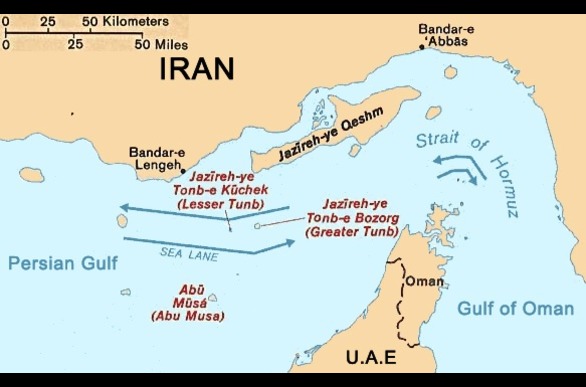U.S. Secretary of State Marco Rubio has urged China to intervene and prevent Iran from following through on a reported plan to close the Strait of Hormuz — a crucial maritime passage that facilitates a significant portion of global oil trade.
His remarks followed a report by Iran’s state-controlled Press TV, which stated that the Iranian parliament had approved a motion to block the Strait. However, the final authority on such a decision rests with Iran’s Supreme National Security Council.
Rubio’s appeal came during an interview on Fox News Sunday, where he stressed the global economic consequences of any disruption to the vital shipping lane. “I encourage the Chinese government in Beijing to call them [Iran] about that, because they heavily depend on the Straits of Hormuz for their oil,” Rubio stated. “If they [close the Straits]… it will be economic suicide for them. And we retain options to deal with that, but other countries should be looking at that as well. It would hurt other countries’ economies a lot worse than ours.”
The Strait of Hormuz is considered one of the world’s most critical oil transit chokepoints, with nearly 20% of the world’s petroleum supplies flowing through it. The waterway is used by major oil and gas producers in the Middle East to transport energy exports to international markets.
Any effort by Iran to impede traffic in the Strait would likely send oil prices soaring and cause ripple effects across global economies. In fact, oil prices surged in the wake of recent U.S. strikes on Iranian nuclear facilities, with Brent crude reaching its highest point in five months before stabilizing. On Monday, Brent briefly rose to $81.40 per barrel before retreating to around $78, still reflecting a 1.4% gain for the day.
“The U.S. is now positioned with an overwhelming defence posture in the region to be prepared for any Iran counter-attacks. But the risk for oil prices is the situation could escalate severely further,” said Saul Kavonic, head of energy research at MST Financial.
The impact of oil prices stretches beyond the fuel pump — influencing the cost of transportation, food, and other essentials worldwide.
China, as the world’s largest importer of Iranian crude, could be especially affected by any blockade of the Strait. According to ship tracking firm Vortexa, China’s imports of Iranian oil exceeded 1.8 million barrels per day last month. Other major Asian economies, such as Japan, South Korea, and India, also heavily rely on oil transported through the strategic waterway.
Energy expert Vandana Hari warned that Tehran has “little to gain and too much to lose” by proceeding with a closure of the Strait. “Iran risks turning its oil and gas producing neighbours in the Gulf into enemies and invoking the ire of its key market China by disrupting traffic in the Strait,” Hari told BBC News.
The call for China to step in comes as the U.S. becomes increasingly involved in the conflict between Iran and Israel. Over the weekend, President Donald Trump confirmed that American forces had carried out strikes against key Iranian nuclear sites, claiming that Washington had “obliterated” Tehran’s facilities. The full extent of the damage, however, remains uncertain.
The UN’s nuclear watchdog reported it was currently unable to assess conditions at Iran’s heavily fortified underground Fordo nuclear site. Iranian officials, meanwhile, claimed the strikes caused only minor damage at the location.
Trump issued a stark warning to Iran, stating that it would face “far worse” consequences should it continue its nuclear program.
China, for its part, condemned the U.S. strikes and called for a de-escalation. On Monday, Beijing said the attacks had undermined Washington’s global credibility and appealed for an immediate ceasefire.
China’s UN Ambassador Fu Cong urged all sides to show restraint and avoid “adding fuel to the fire,” according to a report by state broadcaster CCTV. Additionally, an editorial in the state-run Global Times accused the U.S. of destabilising the Middle East and warned that its intervention was pushing the region toward an “uncontrollable state.”






